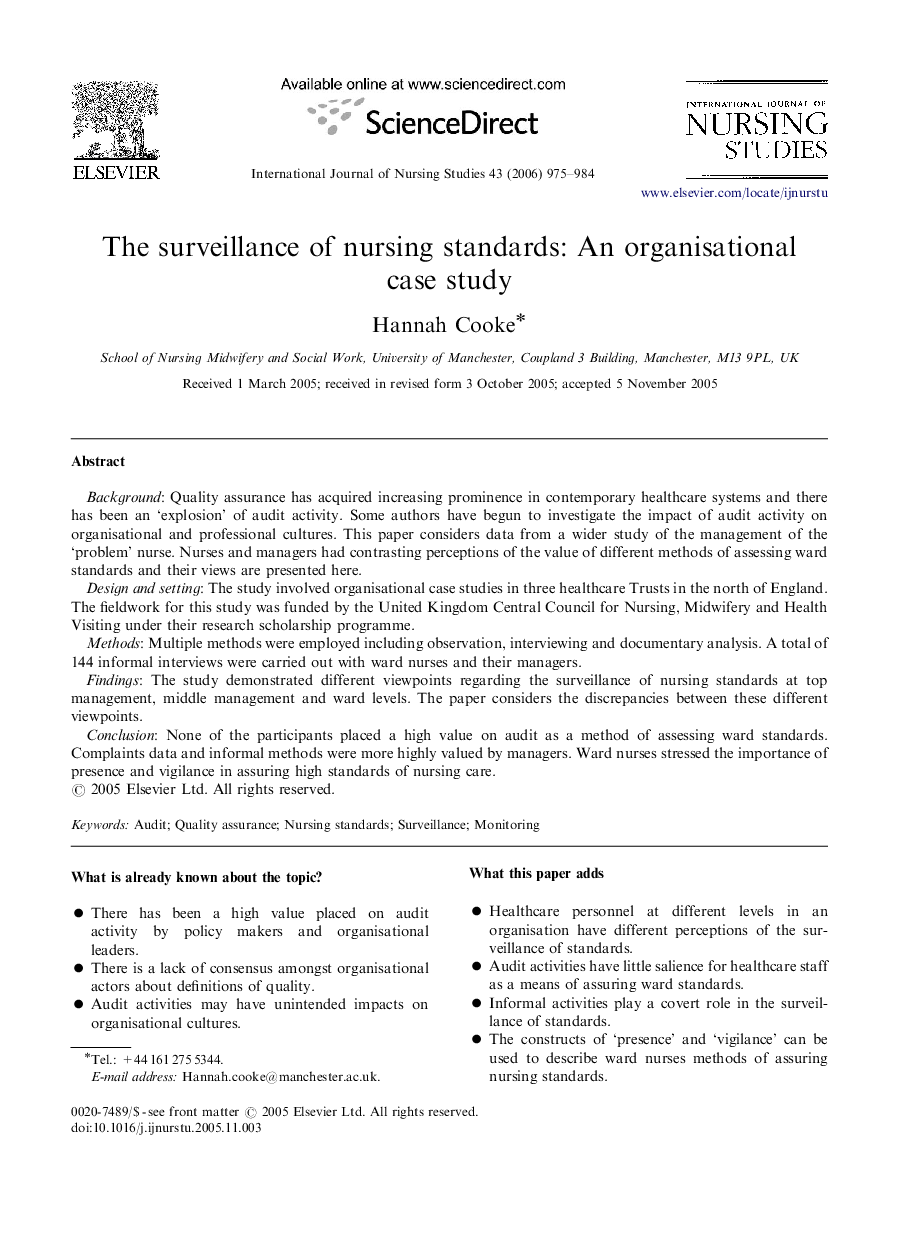| Article ID | Journal | Published Year | Pages | File Type |
|---|---|---|---|---|
| 1077893 | International Journal of Nursing Studies | 2006 | 10 Pages |
Background: Quality assurance has acquired increasing prominence in contemporary healthcare systems and there has been an ‘explosion’ of audit activity. Some authors have begun to investigate the impact of audit activity on organisational and professional cultures. This paper considers data from a wider study of the management of the ‘problem’ nurse. Nurses and managers had contrasting perceptions of the value of different methods of assessing ward standards and their views are presented here.Design and setting: The study involved organisational case studies in three healthcare Trusts in the north of England. The fieldwork for this study was funded by the United Kingdom Central Council for Nursing, Midwifery and Health Visiting under their research scholarship programme.Methods: Multiple methods were employed including observation, interviewing and documentary analysis. A total of 144 informal interviews were carried out with ward nurses and their managers.Findings: The study demonstrated different viewpoints regarding the surveillance of nursing standards at top management, middle management and ward levels. The paper considers the discrepancies between these different viewpoints.Conclusion: None of the participants placed a high value on audit as a method of assessing ward standards. Complaints data and informal methods were more highly valued by managers. Ward nurses stressed the importance of presence and vigilance in assuring high standards of nursing care.
